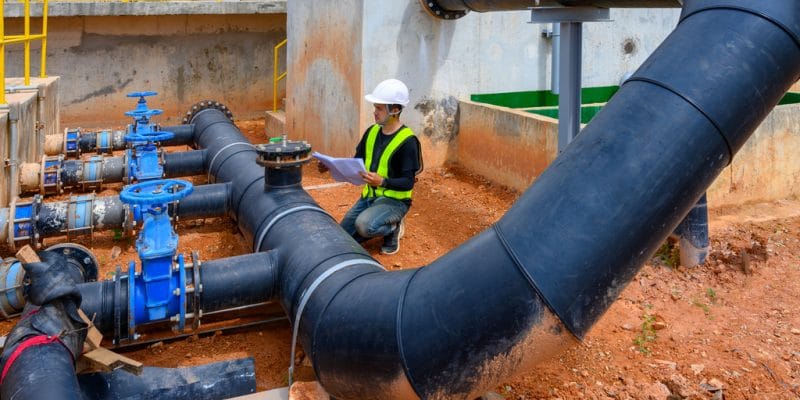The Moroccan government has approved a budget of 5.3 billion Moroccan dirhams (nearly €495 million) presented by the Office national de l'électricité et de l'eau potable (ONEE) on February 16, 2022. This budget will be used to secure the supply of drinking water and the treatment of wastewater in Morocco.
At the end of the recent Board of Directors meeting of the National Office of Electricity and Drinking Water (ONEE) in Morocco, the head of the Moroccan government, Aziz Akhannouch, validated an investment project of 5.3 billion Moroccan dirhams (about 495 million euros) for drinking water and sanitation in 2022.
Read Also –
The public company is implementing several projects in the Cherifian kingdom. Part of its budget will be used to continue the drinking water supply projects underway in Morocco. This will increase ONEE’s production capacity to 7.35 million cubic meters per day, securing service for the population. “To achieve this objective, it is planned to build new facilities in 2022 for an expected production capacity of nearly 1.343 million m3 and to equip an additional flow of 561,600 m3 of drinking water per day,” says ONEE. In the North African country, wastewater management is also the focus of attention.
Wastewater treatment in the face of pollution
ONEE will use the other part of its budget to improve the management of wastewater (domestic, mining, agricultural, oil…) in Morocco’s cities. In this way, 14 wastewater treatment plants will be built in the Kingdom of Morocco by 2022. If this solution is a major advantage for the government, it is first of all because it will allow better preservation of natural resources that are polluted on a daily basis by these effluents.
The future plants will be capable of treating 41,382 m3 of wastewater per day when they are commissioned. The treated wastewater will be returned to nature, reducing the risks to ecosystems. These facilities will support existing ones. By the end of 2020, ONEE already had 119 wastewater treatment plants with a total capacity of 450,405 m3 per day.
Read Also – Urban sanitation, a major challenge for sustainable cities in Africa
In Morocco, the government is also advocating the use of effluent for water-consuming activities such as agriculture or for the replenishment of groundwater in the face of water stress. Other possible uses include watering green spaces and other industrial uses.
Inès Magoum







